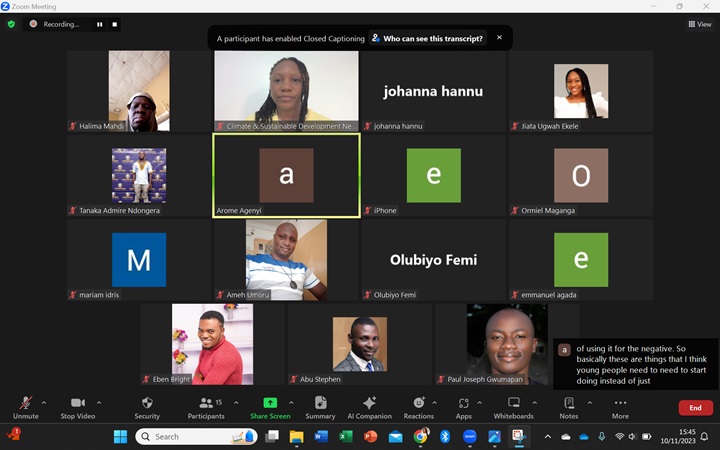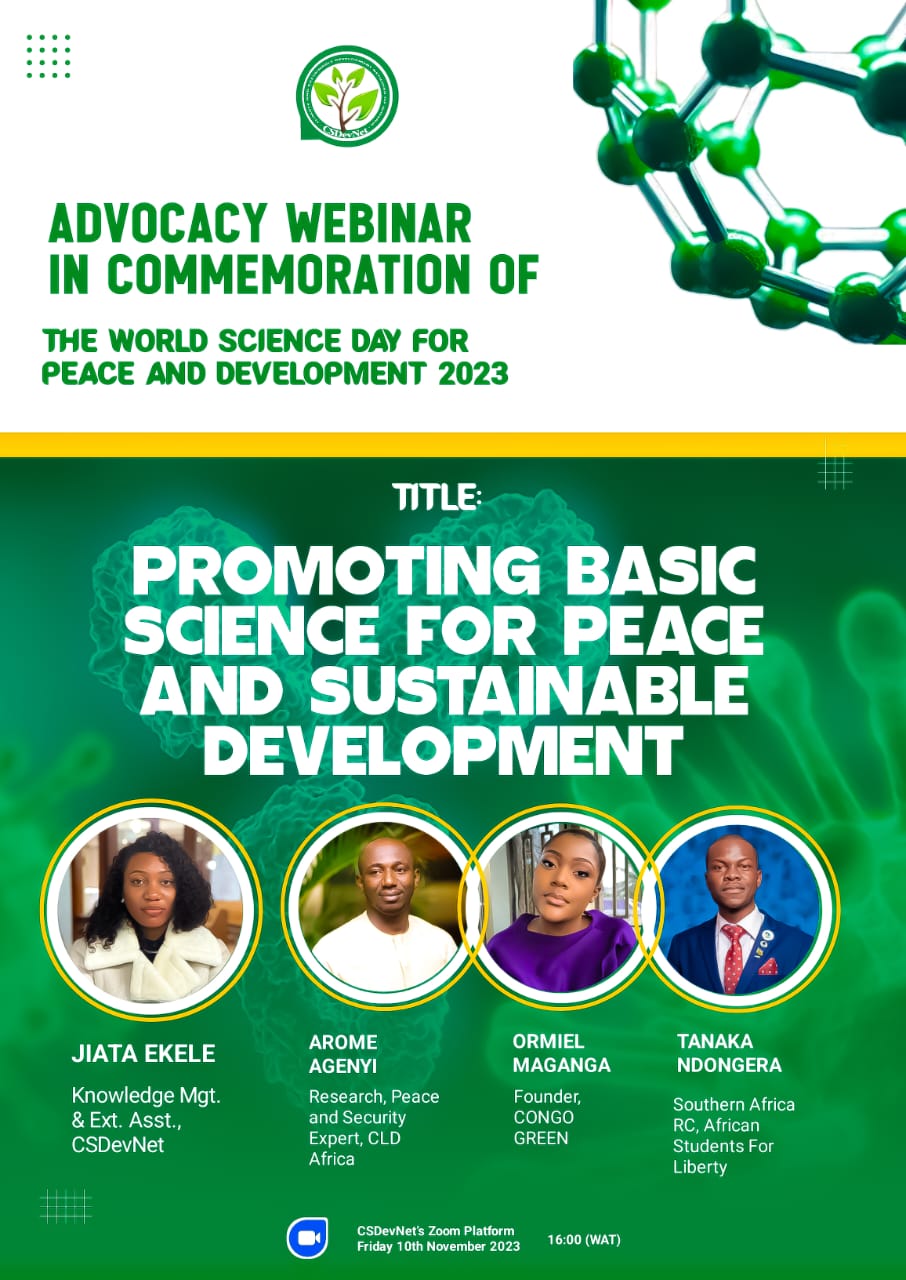
In commemoration of the World Science Day for Peace and Development 2023, a thought-provoking webinar titled “Promoting Basic Science for Peace and Sustainable Development” was organised by the Climate and Sustainable Development Network (CSDevNet).
The virtual event brought together eminent panelists who delved into the significant roles that science plays in the realms of peace building and sustainable development. The insightful discussions provided practical insights drawn from recent wars and conflicts, including the Israel-Gaza conflict.
The three distinguished panelists, Arome Agenyi (Research, Peace and Security Expert from the Centre for Learning and Development Africa), Ormiel Maganga (Founder, CONGO GREEN), and Tanaka Ndongera (southern Africa regional coordinator, African Students for Liberty), shared their perspectives on how science can contribute to peace and sustainable development.
Agenyi passionately highlighted the role of conflicts over natural resources as one of the fundamental triggers of numerous conflicts worldwide, linking it to the pressing issue of climate change.
“Fulani herdsmen in the northern part of Nigeria have been driven down south by desertification and drought consequently engineering conflicts with farmers in the middle-belt and southern regions as they struggle for scarce resources,” he narrated.
“All drivers of conflicts must be handled intricately through constructive dialougue, research and science. Also, all stakeholders should be on board,” he concluded.
Tanaka Ndongera shared a personal story from Zimbabwe, his own country, emphasising the positive efforts of the government and organisations in promoting science among young people.
“Several initiatives such as science exhibitions, boot camps, bursaries and scholarships, have been and are being designed and implemented to encourage youth engagement in scientific fields,” he mentioned.
Ormiel Maganga’s contribution focused on the use of geographic information systems (GIS) in peace-building efforts in the Democratic Republic of Congo. She discussed how harnessing spatial data and technology can be a powerful tool for conflict resolution and reconciliation in war-torn regions.
During the webinar, one of the participants Olubiyo Femi from CSDevNet, drew attention to the adverse impacts of science in the context of warfare, specifically the creation of missiles and weapons. This highlighted the dual nature of scientific progress, where it can be used for both destructive and constructive purposes.
The overall consensus from the webinar was the need to promote the positive aspects of science while discouraging its harmful applications. They stressed the importance of fostering a responsible and ethical approach to scientific advancements.
Importantly, the panelists and participants called for collaborative efforts across various stakeholders, including governments, civil society, research institutions, and the media, to facilitate science and research that contribute to peace building and sustainable development.
Such collaborations are seen as essential to harnessing the full potential of science in addressing global challenges and advancing the cause of peace and development.
As the World Science Day for Peace and Development 2023 comes to a close, the insights and commitments made during this enlightening webinar serve as a reminder of the pivotal role that science plays in shaping a more peaceful and sustainable future.
The call to unite in the pursuit of positive scientific contributions while vigilantly monitoring and restraining harmful applications resonates as a collective responsibility for all of humanity.

